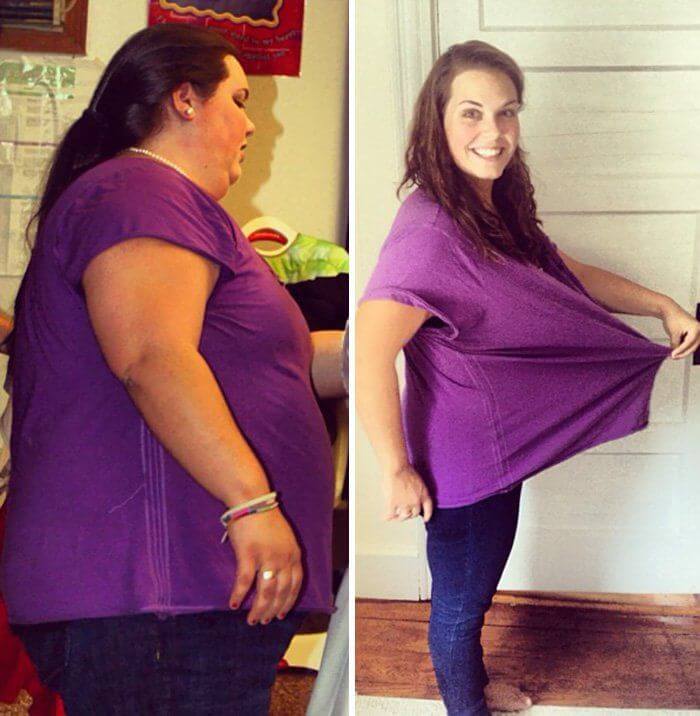
Why am I not losing weight? Mysterious reasons for weight gain and comfortable weight loss without fasting
Are you on a diet, doing sports, and the kilograms do not disappear? Perhaps you are making the typical mistakes of slimming
Nutritionists and nutrition specialists often hear complaints from customers: "I'm on a diet, I'm doing sports, and the weight has stopped!" Sometimes, despite all efforts, the kilograms not only do not disappear, but also increase. Why is this happening? Perhaps you make a few mistakes, typical for losing weight.
Choose fast diets
I really want to get into a new dress, and an important event is only two weeks away, so it's time for a strict diet! Thousands of girls decide this every day. The network offers many options for low-calorie diets that promise minus 5 kilograms per week.
Yes, the weight will go away quickly, and then it will return just as quickly. The body, after experiencing restrictions and stress, will definitely try to stock up on nutrients to survive the next diet.
Limiting calories too much
Counting calories for many has become the most convenient way to get rid of excess weight, but some decide to cut their daily diet too much. So, if you ate 2,500 calories a day, and then decided to eat no more than 1,200 calories, of course, the kilograms will begin to melt rapidly.
But soon the body will decide that hard times have come, therefore, despite the meager diet, it will stop parting with the accumulated weight. Remember that the calorie deficit should not exceed 15% of the daily calorie allowance. Under this condition, the kilograms will go away gradually and evenly, without causing harm to health.
Do you abuse healthy food
It seems that you eat only healthy foods: you start the day with oatmeal porridge, snack on nuts and dried fruits, and have dinner with fish and vegetables, but the weight does not fall, or maybe the arrow of the scales even crawls to the right. This happens if the total caloric content of the daily diet is more than what your body consumes.
Think about it, maybe your portions are too big? After all, a plate of oatmeal contains about 300 calories, and if you add honey to it, then about 400. Nuts, dried fruits, whole grain bars are very high in calories.
That is why modern nutritionists do not advise dividing products into "correct" and "harmful", because only the total caloric content of the diet affects weight loss.
Do not take into account snacks
It seems that breakfast, lunch and dinner are strictly calculated, and the candy that a colleague has treated is unlikely to greatly affect the weight. But, without taking into account snacks, you can significantly exceed the daily calorie allowance. For example, a portion of latte with milk and syrup contains more than 300 calories, which many do not take into account when drinking coffee on the way to the office.
This mistake is often suffered by young mothers trying to lose weight: carefully controlling the diet, they do not take into account what they have finished for the baby. And half a cracker, a couple of spoonfuls of porridge, a piece of fish eventually add extra calories.
Don't get enough sleep
Endocrinologists warn: constant lack of sleep leads to a malfunction of the hormonal system. The production of the hormone responsible for the signals of satiety is suppressed, and substances that tell you that you are hungry begin to work more actively.
Normalize the daily routine to rest for at least eight hours, and you will notice that the centimeters on the waist began to go away, and the wolfish hunger disappeared without a trace.
How to trick the brain and eat less
So that the brain does not ask for supplements after lunch, in order to finally start eating less, you need:
1 – get enough sleep
The one who goes to bed late eats more than he should the next day. According to the observations of endocrinologists, if a person sleeps less than 7 hours, he overeats an average of 385 kcal per day. This is equivalent to eating 6 hard-boiled eggs, an average piece of cake or 4 pancakes with sour cream. With constant lack of sleep, a person overeats regularly.
2 – eat the right foods
Not all foods saturate equally. Even the most high-calorie ones do not always dull hunger. The diet should include foods from which you can get a lot of energy, and which will take a long time to digest:
- a lot of healthy fats in avocados, nuts, chia seeds, fish;
- there is a lot of fiber in corn, beans, eggplants, carrots, beets;
- there are a lot of "long" carbohydrates in buckwheat, wheat, white bread, bread, zucchini.
3 – adjust the power supply
In the morning you need to have breakfast! During the day, you need to make at least two snacks. Meals can not be skipped, otherwise overeating is guaranteed.
4 – establish a drinking regime
Thirst can be confused with hunger. During the day, you need to drink enough to avoid overeating.
5 – fight stress
A person is constantly eating stress with something, and, of course, not useful. Due to an overabundance of sugar and trans fats, stress is aggravated.
Useful tips on how to eat without overeating
Common mistakes lead to overeating. What to do:
- use small dishes;
- decorate dishes;
- to withstand the contrast: for example, tomatoes and yellow peppers put on a plate with lettuce leaves;
- don't eat dishes when they are too hot;
- do not give up spices and herbs;
- don't rush;
- don't eat in a hurry;
- do not be distracted during meals, namely: do not eat during the work process, do not have dinner in front of the TV;
- use compact small cutlery and colored dishes;
- eat less sweets;
- replace dessert with fruit tea;
- brush your teeth after dinner.











